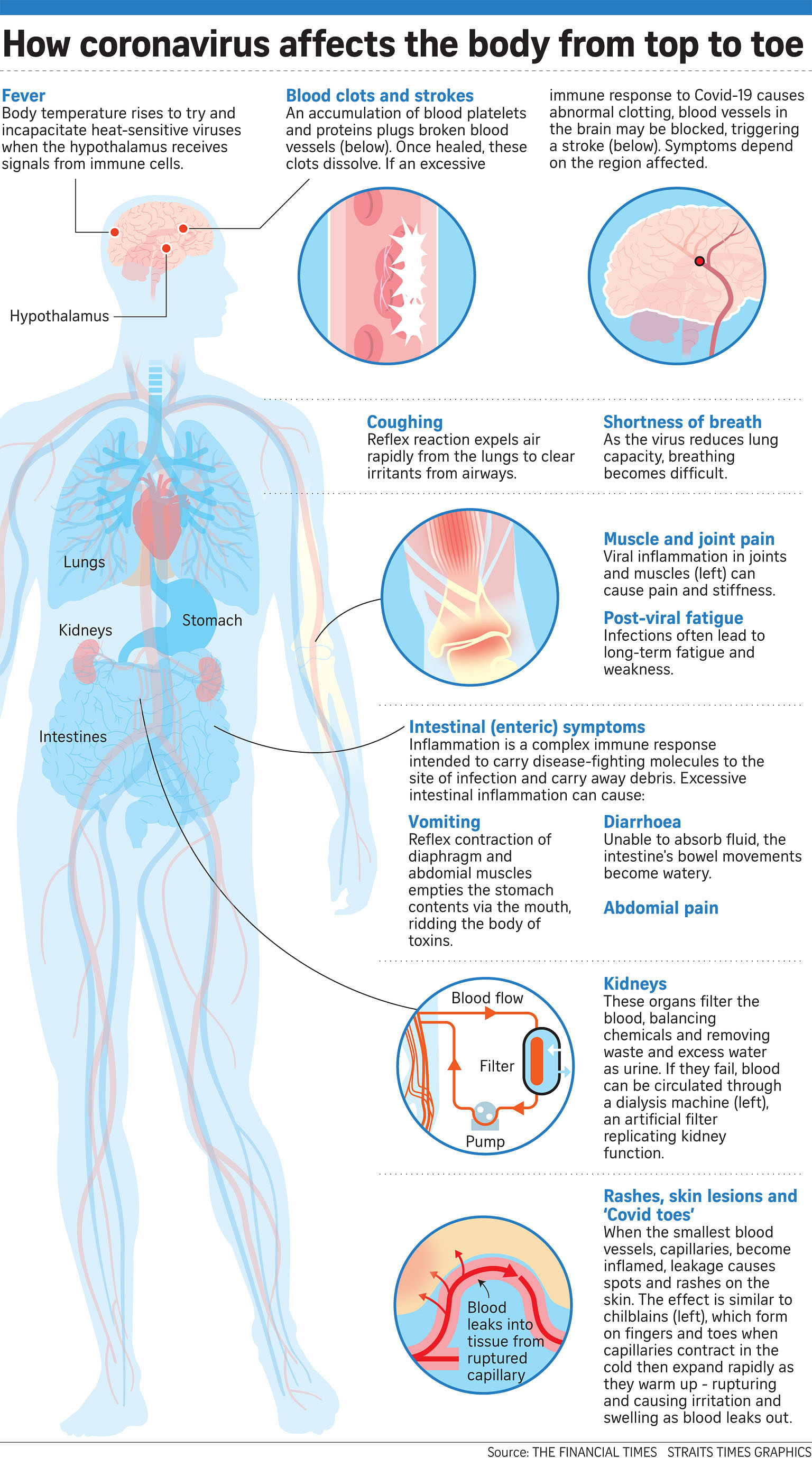The deadly coronavirus can cause a victim's blood to curdle, a surprise complication that has disturbed experts studying the killer virus, Wired reported on Thursday.
The formation of these blood clots can be dangerous, as seen in autopsies where some people's lungs were found to be full of hundreds of microclots, The Washington Post reported last month.
These errant blood clots of a larger size could also travel to the brain or heart, causing a stroke or heart attack, the report added.
The report in Wired said researchers have long known about the link between infectious diseases and blood clotting.
It said there is also data to indicate a heightened risk of fatal heart attacks among those who get plain old influenza.
Agence France-Presse reported in late March that Broadway and TV actor Nick Cordero's doctors were forced to amputate his right leg after he had spent nearly three weeks in an intensive care unit being treated for Covid-19.
The 41-year-old's blood flow had been impeded by a clot, in yet another dangerous complication of the disease that has been bubbling up in front-line reports from China, Europe and the United States.
The AFP report also said that while so-called "thrombotic events" occur for a variety of reasons among intensive care patients, the rates among Covid-19 patients are far higher than would be otherwise expected.
"I have had 40-year-olds in my ICU who have clots in their fingers that look like they'll lose the finger, but there's no other reason to lose the finger than the virus," Dr Shari Brosnahan, a critical care doctor at NYU Langone, told AFP.
One of these patients is suffering from a lack of blood flow to both feet and both hands, and Dr Brosnahan predicts an amputation may be necessary, or the blood vessels may get so damaged that an extremity could drop off by itself.
A recent paper from the Netherlands in the journal Thrombosis Research found that 31 per cent of 184 Covid-19 patients suffered thrombotic complications, a figure that the researchers called "remarkably high" - even if extreme consequences like amputation are rare.
Dr Behnood Bikdeli, a doctor at New York-Presbyterian Hospital, assembled an international consortium of experts to study the issue. Their findings were published in the Journal of The American College of Cardiology.
The experts found the risks were so great that Covid-19 patients "may need to receive blood thinners, preventively, prophylactically", even before imaging tests are ordered, Dr Bikdeli told AFP.
What exactly is causing it? The reasons are not fully understood, but he offered several possible explanations.
People with severe forms of Covid-19 often have underlying medical conditions, such as heart or lung disease, which are themselves linked to higher rates of blood clotting.
Next, being in intensive care makes a person likelier to develop a blood clot because they are staying still for so long. That is why, for example, people are encouraged to stretch and move around on long-haul flights.
It is also now clear that the Covid-19 illness is associated with an abnormal immune reaction called "cytokine storm" - and some research has indicated this too is linked to higher rates of clotting, the AFP report said.
There could also be something about the virus itself that is causing coagulation, which has some precedent in other viral illnesses.
A paper in the journal The Lancet last week showed that the virus can infect the inner cell layer of organs and of blood vessels, called the endothelium. This, in theory, could interfere with the clotting process.
According to Dr Brosnahan, while thinners like Heparin are effective in some patients, they do not work for all patients because the clots are at times too small.
It has been just a few months since the virus emerged in Wuhan, China, and researchers are learning more about its impact every day.
"While we react surprised, we shouldn't be as surprised as we were. Viruses tend to do weird things," Dr Brosnahan told AFP.












